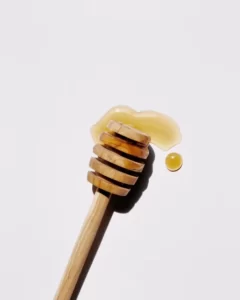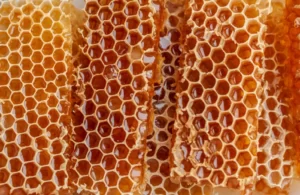Table of Contents
Introduction
Wound healing is a complex process in both human and Veterinary medicine. The use of topical Manuka honey has been suggested to support and aid in the healing process. This article will explore the use of honey in wound healing in the Veterinary field.
The Benefits of Honey in Wound Healing
Wound healing involves inflammation, repairing, and scarring. Honey has been used for many years in wound healing due to its beneficial properties. The following are some desired properties of honey:
- Antibacterial: Honey has proven to fight infection and promote wound healing (Marcombes, 2020).
- Bleeding Wounds: Honey can be applied to bleeding wounds.
- Granulating Wounds: Honey is effective on healthy granulating wounds.
The Use of Manuka Honey in Veterinary Medicine
There are hundreds of types of honey available worldwide. In the UK Veterinary market, medical-grade Manuka honey products have been introduced in recent years. Manuka honey is produced only in New Zealand by bees that gather nectar from the Manuka flower.
Manuka honey is unique in its antimicrobial properties, which are graded using a system called UMF (unique antimicrobial Manuka factor). A higher UMF indicates a stronger antimicrobial effect. For effective wound management, a minimum UMF of +10 should be used. Standard and ungraded honey should not be applied directly to wounds unless advised by a Vet.
The Benefits of Manuka Honey in Veterinary Practice
Manuka honey is a useful treatment aid in wound management in Veterinary practice. It provides multiple benefits and should be used according to the nature of the wound. Consulting a Vet is recommended to determine if honey is appropriate for your pet’s wound.
Conclusion
Manuka honey has proven to be effective in wound management. Its antimicrobial properties and other benefits make it a valuable treatment option. However, it is important to use honey appropriately and consult a Vet for advice.
This article was brought to you by https://aboutmanukahoney.com.
Please note that the information provided is not a substitute for professional medical advice and should not be used for self-diagnosis or treatment. Always consult a qualified healthcare provider for any specific questions or concerns.



